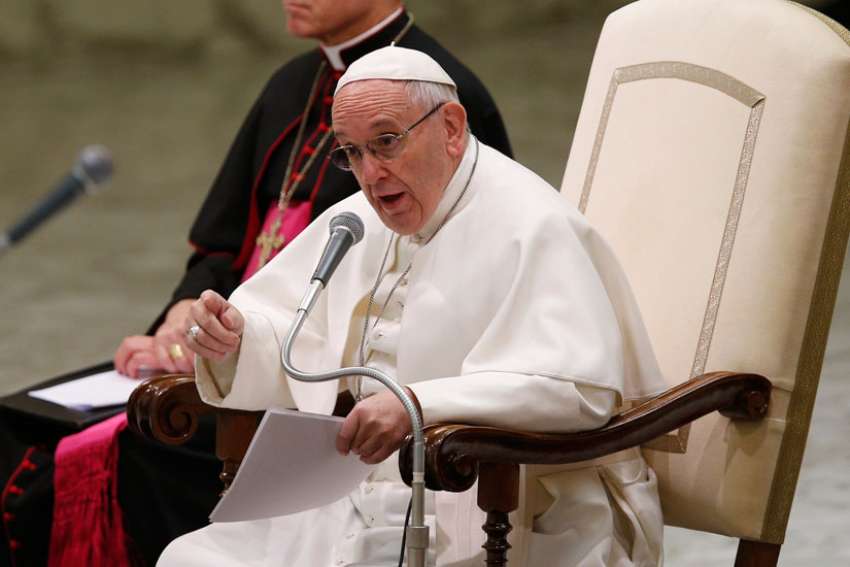“The phenomena of the mafia, which is an expression of a culture of death, is (something) to oppose and to fight,” the Pope said Jan. 23.
Mafia activity “is radically opposed to the faith and to the Gospel, which are important for life,” he said, adding that true followers of Christ “have thoughts of peace, fraternity, justice, welcome and forgiveness.”
Pope Francis spoke to members of the National Anti-Mafia and Anti-terrorism Bureau during an audience with the organization in the Vatican’s Apostolic Palace.
He initially made headlines regarding the mafia in June 2014 during his visit to the southern Diocese of Cassano all'Jonio, during which he slammed mafia members for being “adorers of evil” and declaring that because they follow a path contrary to the Gospel, they are “excommunicated.”
While the Pope’s words didn’t necessarily imply an official canonical excommunication, they shocked many, especially given the fact that many “mafiosi” claim to be devout Christians and even go to Mass, while at the same time carrying out their crimes.
In his speech to the Anti-Mafia Bureau, Francis pointed to the three main criminal organizations that operate in Italy, mostly in the south: the Mafia, who operate mainly Sicily; the Camorra, who run criminal activities largely in Italy’s Campagna region, particularly in Naples, and the ‘Ndrangheta, who mostly work in Calabria.
In addition to these three main criminal circles in Italy, another more specific organization, the Sacra Corona Unita, operates largely in Puglia, also in the southern half of the country.
These criminal groups are “increasingly assuming a cosmopolitan and devastating aspect” by exploiting economic, social and political weaknesses, which Francis said are “fertile ground to achieve their deplorable projects.”
Now more than ever increased effort is needed in order to combat the activity and power of these groups, “which are responsible for violence and oppression stained by human blood.”
Society needs to be healed from corruption and exploitation, he said, naming human trafficking and the drug and arms trade as examples. Francis pointed specifically to the impact these have on children, who are often “reduced to slavery.”
Calling organized crime a “social wound,” the Pope said these groups also constitute global challenges that the international community must face “with determination,” and urged greater collaboration among States.
He also turned to the plight of migrants, many of whom fall victim to traffickers, and exhorted leaders “to dedicate every effort especially in combating the trafficking of persons and of the smuggling of migrants.”
“These are very serious crimes that affect the weakest of the weak,” he said, and called for an increase in initiatives aimed at both protecting victims of trafficking and providing assistance to incoming migrants.
“Those who leave their own countries due to war, violence and the persecutions have a right to find adequate welcome and appropriate protection in the countries that call themselves civil,” he said.
All sectors of society, particularly educational programs, families, schools, Christian communities and sporting and cultural activities, ought to promote an honest and fraternal lifestyles, he said, adding that these will “little by little overcome evil and pave the way for good.”
Pope Francis closed his speech pointing to the work many parishes already do in these areas, and prayed that the Lord would give them the strength to continue going forward in their fight against mafia, violence and terrorism.
He assured of his prayers and support, asking that “the just and merciful Lord touch the hearts of the men and women of the various mafias in order to stop, to cease doing evil, to convert and to change their lives”
“The money of dirty affairs and mafia crimes is blood money and produces an unequal power,” he said, noting that “we all know that the devil ‘enters the pockets:’ the first corruption is here.”
(Story from the Catholic News Agency)


